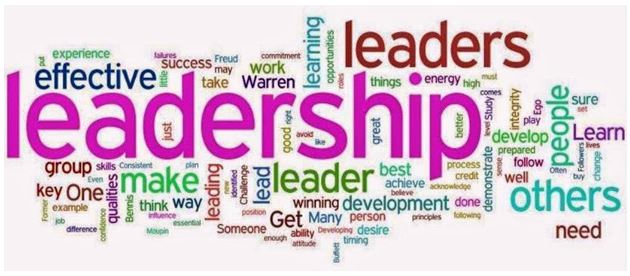Continuous Cycle of Leadership Evolution
The specialized skills of the most successful leaders adapt and evolve in tune with the needs of their business environment.Remember when Tim Cook was chosen as the CEO for Apple? There were many questions about why you would prefer a supply chain expert for the head of Apple? Well, continuously since then, he has shown why and at this point in history, the impact of his genius in supply chain strategy is unrivalled. Before that, possessing sales skills were critical to the success of the enterprise and its leader, and before that, superior operational skills were essential. It does not take a rocket scientist to connect the dots – successful leadership must respond to the requirement of evolving specialization, which is driven for the most part by the most significant underlying challenges of the times. We would suggest that the declining level of engagement by the workforce has rapidly become entrenched as the most critical challenge of our time in all areas of the economy. Some of the underlying reasons for this disengagement and why it will require a very different leadership to resolve include:
Successful leaders need to possess strong human capital management ("HCM") skills to address these above issues. How the following abilities are deployed will be as equally important to successful leaders as having them:
This newly evolving skill set that successful leaders urgently require has and will impact the gender makeup of the leadership group in most industries. This premise is not based on hope or wishful thinking. Instead, on the science of the brain in general and the differences in the attributes of male and female brains, which continues to grow and evolve. There have been a number of studies conducted on the differences in male and female brains. When you just look at broad factors the differences can be interpreted as cancelling each other out, leading to thinking that sex differences in personality do not exist. However, a report from December 2019 provided the following example:
So well there is nothing to indicate a difference in intellectual performance; as noted in the book "Leadership and the Sexes: Using Gender Science to Create Success in Business", there are differences in behavioural patterns including: How and what we remember: Women tend to take in more through their five senses than men do and store more of this material in the brain for later use. Thus they tend to remember more details during a conversation. How we process words (including how many and what kinds of words we use): Women use many more words than men while speaking, reading, and writing.
How we experience the world: Female retinas have more P ganglion cells — which see colour and fine detail — while male retinas have more M ganglion cells, which more easily see the physical motion of objects around them.
What we buy and why we buy it: Women's buying is linked to immediate complex sensory experience, so they enjoy walking through a store and touching objects; men relate more of their buying to performance competition, so they tend to buy memorabilia from sports teams with which they identify.
The way our midbrain (limbic system) and emotional processing works: A woman can process a major emotion‐laden experience immediately, whereas it may take a man hours to do so. This often creates a lot of tension between men and women.
The amounts of white and grey matter in the brain: Women have more white matter, which connects brain centres in the neural network, while men have more grey matter, which localizes brain activity into a single brain centre. This is one reason the genders bring different perspectives to the same problem or design. Women can connect widely different elements that men don't make, while men tend to focus on one element or pattern without distraction better than women. These differences in thought patterns generally result (not always, of course) in a more in-depth possession and fluid and effective use of the HCM skills identified earlier in this article. A real example of this difference is in how the genders would deal with diversity and inclusion. First, it is essential to understand that leadership stating that the entity strongly supports diversity and inclusion and has policies to be followed neither ensures their execution as intended nor matches peoples' experience. Successful execution requires a combination of participative collaboration, descriptive communication, EQ, and individual development so that policies mirror what people experience. Muhtar Kent (former chairman and chief executive officer of The Coca-Cola) perhaps said it best when he shared that
Stephen Mabey is a CPA, CA and the Managing Director of Applied Strategies, Inc. Stephen's focus is on law firms in general and on small to medium size law firms in particular. He has written about and advised on, a wide range of issues including – leadership, business development, marketing, key performance indicators, strategic planning, mergers, practice acquisitions, competitive intelligence, finance, mergers, practice transitioning, compensation, organizational structures, succession and transition planning, partnership arrangements and firm retreats. In 2013, Stephen was inducted as a Fellow of the College of Law Practice Management in recognition of his sustained commitment to the highest standards of professionalism in law practice management. For more information, visit appliedstrategies.ca or connect with Stephen Mabey on LinkedIn. Michael Mabey is VP, Client Solutions Americas, for SKIM Analytical, a Netherlands-based global market research agency. Mike focuses on strategy and competition in three areas: consumer decision journeys, digital commerce, and recurring revenue business models. Mike is also an eCommerce lead at SKIM and often speaks about insights and trends at industry conferences. He is based in Atlanta. You can connect with Mike at 1 470 891 4696 or by email at m.mabey@skimgroup.com.
|



